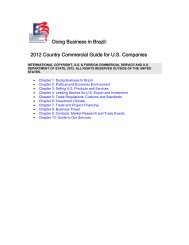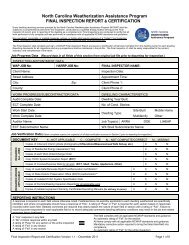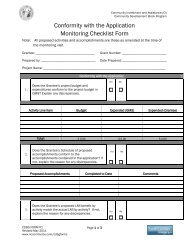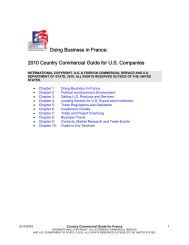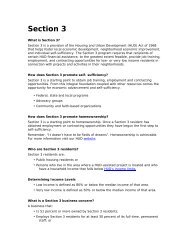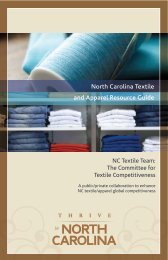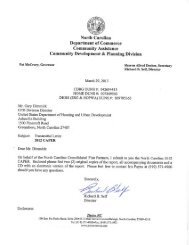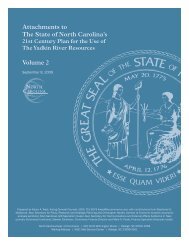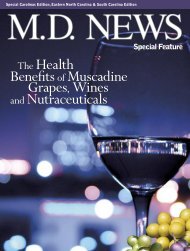Doing Business In (Insert Country Name Here) - Department of ...
Doing Business In (Insert Country Name Here) - Department of ...
Doing Business In (Insert Country Name Here) - Department of ...
You also want an ePaper? Increase the reach of your titles
YUMPU automatically turns print PDFs into web optimized ePapers that Google loves.
Return to table <strong>of</strong> contentsChapter 5: Trade Regulations and Standards• Import Tariffs• Trade Barriers• Import Requirements and Documentation• U.S. Export Controls• Temporary Entry• Labeling and Marking Requirements• Prohibited and Restricted Imports• Customs Regulations and Contact <strong>In</strong>formation• Standards• Trade Agreements• Web ResourcesImport TariffsReturn to topUnder the terms <strong>of</strong> the NAFTA, Mexico eliminated tariffs on all remaining industrial andmost agricultural products imported from the United States on January 1, 2003. Theremaining tariffs and non-tariff restrictions on corn, sugar, milk powder, orange juice, anddried beans were phased out as <strong>of</strong> January 1, 2008.Nevertheless, in reaction to the U.S. Congress halted the Cross-Border Trucking PilotProgram, Mexico imposed duties ranging from 10 to 20 percent on a variety <strong>of</strong> U.S.exports as <strong>of</strong> March 19, 2009. Products affected by these duties include onions,almonds, dates, peanuts, cherries, wine, beauty products, tooth paste and other oralcare products, plastic and glass ware, yarn, jewelry, and household appliances.A number <strong>of</strong> U.S. exports are subject to antidumping duties that limit access to theMexican market. Products subject to these duties currently include beef, apples,epoxidized soy oil, liquid caustic soda, monoethylene glycol mono butyl ether,ammonium sulfate, stearic acid, partially hydrogenated fatty acid, bond paper, andwelded carbon steel pipe. The United States exempted Mexico from the now expiredsafeguard action on steel.Mexico also has implemented what are called “Sectoral Promotion Programs(PROSEC)” which reduce MFN tariffs to 0 or 5 percent on a wide range <strong>of</strong> importantinputs needed by Mexico’s export manufacturing sector. This program includes some 20different industry sectors and affects 16,000 tariff line items. Mexican companies mustbe registered under this program to participate, and it can be difficult to qualify.All NAFTA-compliant products imported definitively into Mexico no longer need to paythe customs processing fee (CPF). Products temporarily imported for processing andre-export may be subject to the CPF since the imports are not considered “definitive.”Mexico has, in addition, a value-added tax (IVA) on most sales transactions, includingsales <strong>of</strong> foreign products. The IVA is 11 percent for products staying in the Mexican




